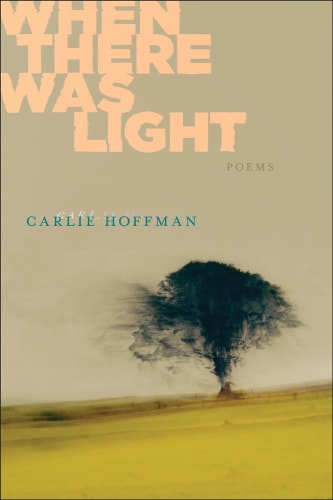
When There Was Light
While Hoffman's debut collection interrogated the mythos built around grief, inhabiting an Alaska of the mind, her stunning sophomore collection When There Was Light looks at the past for what it was.These poems map out a topography where global movements of diaspora and war live alongside personal reckonings: a house's foreclosure, parents' divorce, the indelible night spent drunk with a best friend "[lying] down inside a chronic row of corn." Here, her father's voice "is the stray dog barking / at the snow, believing the little strawberries grow wilder / against a field." In these pages, she points to Russia and Poland and Germany, saying, "It was / another time. My people / another time. The synagogues burn decades / of new snow." The brilliance of this collection illuminates the relationship between memory and language; "another time" means different, back then, gone and lost to us, and it means over and over, always, again. With this linguistic dexterity and lyrical tenderness, Hoffman's work bridges private and public histories, reminding us of the years cloaked in shadows and the years when there was light.
When There Was Light
